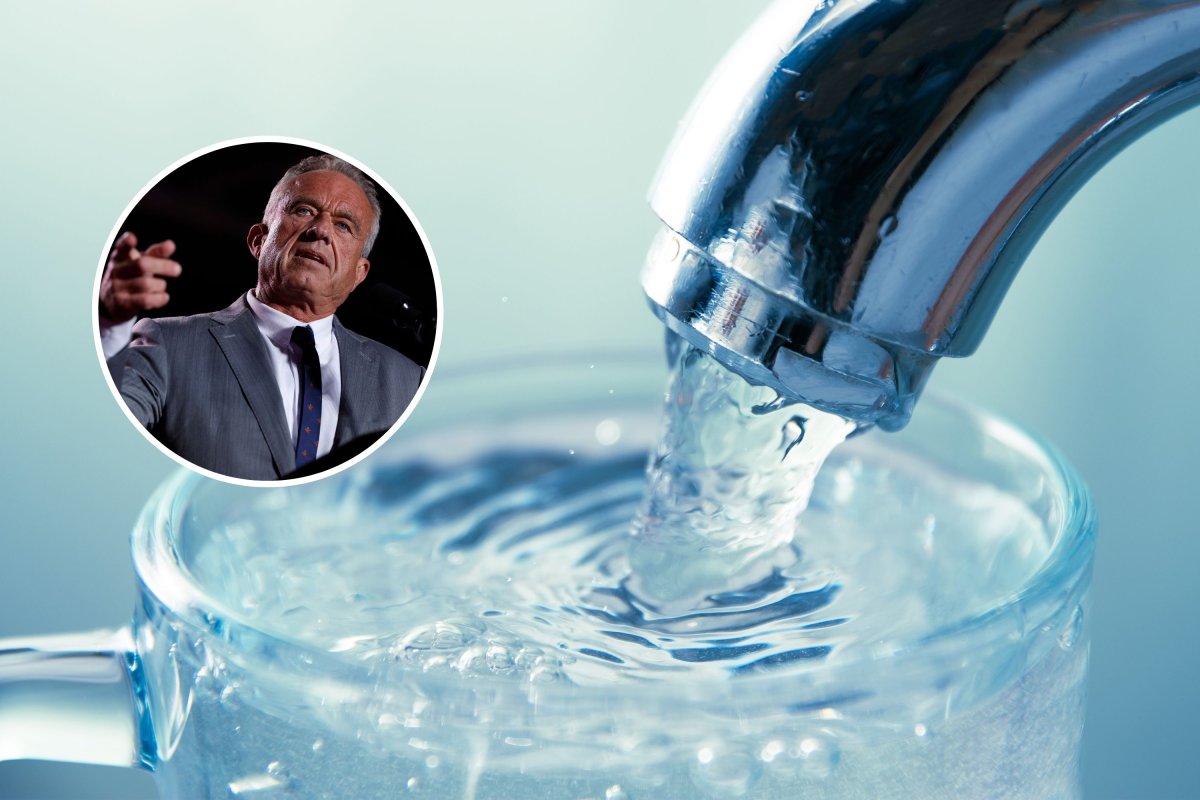President-elect Donald Trump has nominated Robert F. Kennedy Jr. to lead the Department of Health and Human Services.
Trump announced his pick on Thursday, in the wake of Kennedy's recent comments about the safety of fluoride in tap water. Kennedy, who ran in the 2024 presidential election first as a Democrat and then as an independent before dropping out and endorsing Trump, also has a long history of spreading vaccine misinformation.
On November 2, in a post on X, formerly Twitter, Kennedy called for the removal of fluoride from U.S. drinking water. He wrote, "Fluoride is an industrial waste associated with arthritis, bone fractures, bone cancer, IQ loss, neurodevelopmental disorders, and thyroid disease."
On January 20, the Trump White House will advise all U.S. water systems to remove fluoride from public water. Fluoride is an industrial waste associated with arthritis, bone fractures, bone cancer, IQ loss, neurodevelopmental disorders, and thyroid disease. President…
— Robert F. Kennedy Jr (@RobertKennedyJr) November 2, 2024Why Is Fluoride Used in Tap Water?
Fluoride is a mineral that helps strengthen tooth enamel, making it more resistant to acid attacks from plaque bacteria and sugars, according to the American Dental Association, the Centers for Disease Control and Prevention, and other health bodies.
Numerous studies have shown that fluoridated water reduces the prevalence of cavities in children and adults, as the fluoride replaces minerals in our tooth enamel that acid breaks down.
"Almost all water contains some naturally occurring fluoride, but usually at levels too low to prevent cavities. Many communities add a small amount of fluoride to the water supply to prevent cavities and promote good oral health," the CDC said on its website.
Fluoridation is a low-cost way to improve dental health at a population level, especially in areas where dental care may not be affordable for everyone.
"Studies prove water fluoridation continues to be effective in reducing dental decay by at least 25 percent in children and adults, even in the era of widespread availability of fluoride from other sources, such as fluoride toothpaste," the American Dental Association said on its website.

When Was Fluoride First Added to Tap Water?
Fluoride was first added to tap water in 1945 in Grand Rapids, Michigan, after research showed that communities with naturally fluoridated water had significantly lower rates of dental cavities. Studies in Grand Rapids confirmed a dramatic reduction in tooth decay among children, and in the subsequent years, fluoridated tap water spread across the U.S.
According to the CDC, about 75 percent of Americans receive fluoride in their tap water.
How Much Fluoride Is in Tap Water?
The amount of fluoride in tap water depends on local regulations and guidelines, but it is typically maintained at a concentration of 0.7 milligrams per liter in areas where fluoride is added. The Department of Health and Human Services set the optimal level at 0.7 mg/L in 2015, decreasing from a recommended range of 0.7 to 1.2 mg/L.
In areas where fluoride occurs naturally in water, concentrations may be higher, and adjustments can be made to meet health guidelines.
"The best source of information on the fluoride level of your drinking water is your local water provider," the CDC said.
Is Fluoride Bad in Water?
"Water fluoridation is safe, effective and healthy. Seventy years of research, thousands of studies and the experience of more than 210 million Americans tell us that water fluoridation is effective in preventing cavities and is safe for children and adults," the ADA said.
However, excessive exposure or overconsumption of fluoride can lead to certain health risks.
Excessive fluoride exposure during the development of teeth (usually in children under 8 years old) can lead to dental fluorosis, resulting in discoloration or streaks on the enamel. Additionally, long-term consumption of water with fluoride levels exceeding recommended limits can lead to skeletal fluorosis, which can cause joint pain, stiffness and bone abnormalities.
Excessive fluoride may also interfere with iodine absorption, potentially affecting thyroid hormone production—though this is an issue only if a person is consuming fluoride at much higher levels than recommended. Some research suggests high fluoride levels may affect cognitive development in children, but these findings are controversial and also primarily associated with very high exposure in certain regions.
A federal review by the National Toxicology Program at the National Institutes of Health published in August found an association between lowered IQ in children and higher levels of fluoride. However, the findings were based on studies where fluoride levels were about twice the recommended limit for U.S. drinking water.
"The evidence of an association between fluoride exposure below 1.5 mg/L and lower IQ in children appeared less consistent than results of studies at higher exposure levels," the review said.
There is no evidence to support Kennedy's claim that fluoride is associated with cancer.
"Like many common substances essential to life and good health—salt, iron, vitamins A and D, chlorine, oxygen and even water itself—fluoride can be toxic in massive quantities," the ADA said, adding, "Acute fluoride toxicity occurring from the ingestion of optimally fluoridated water is impossible."
For reference, the ADA said, that would involve a 155-pound man drinking 120 gallons of water fluoridated at 0.7 mg/L all at once.
In May, the CDC said in a statement, "Expert panels consisting of scientists from the United States and other countries, with expertise in various health and scientific disciplines, have considered the available evidence in peer-reviewed literature and have not found convincing scientific evidence linking community water fluoridation with any potential adverse health effect or systemic disorder such as an increased risk for cancer, Down syndrome, heart disease, osteoporosis and bone fracture, immune disorders, low intelligence, renal disorders, Alzheimer [sic] disease, or allergic reactions."
Do you have a tip on a science story that Newsweek should be covering? Do you have a question about fluoride? Let us know via science@newsweek.com.


















:quality(85):upscale()/2024/04/24/878/n/3019466/36c5693c662965c5d1ce91.72473705_.jpg)

 English (US) ·
English (US) ·